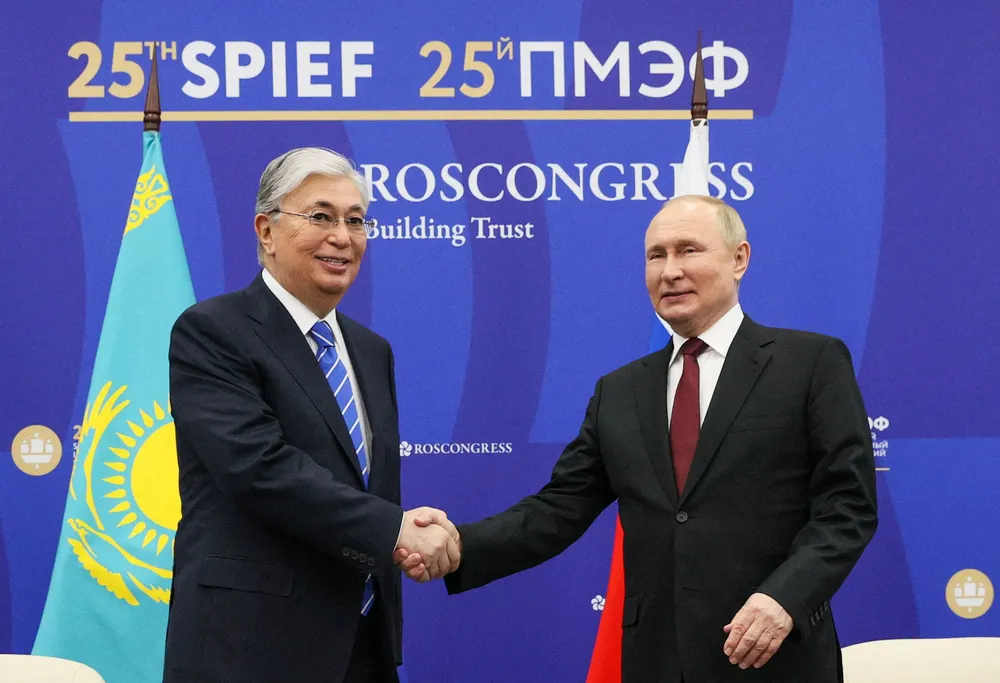Kazakhstan sees Russia as ‘partner and ally’ despite oil transit threat
President orders urgent steps to diversify Kazakh oil export routes while striking conciliatory tone with Moscow

President orders urgent steps to diversify Kazakh oil export routes while striking conciliatory tone with Moscow
